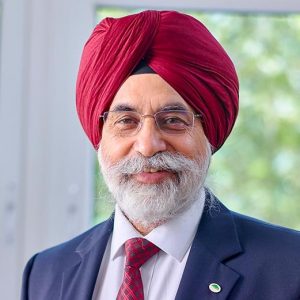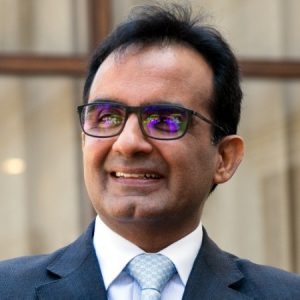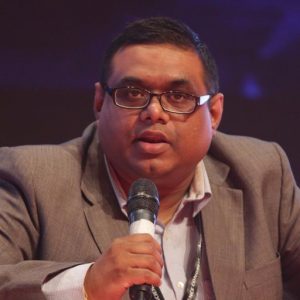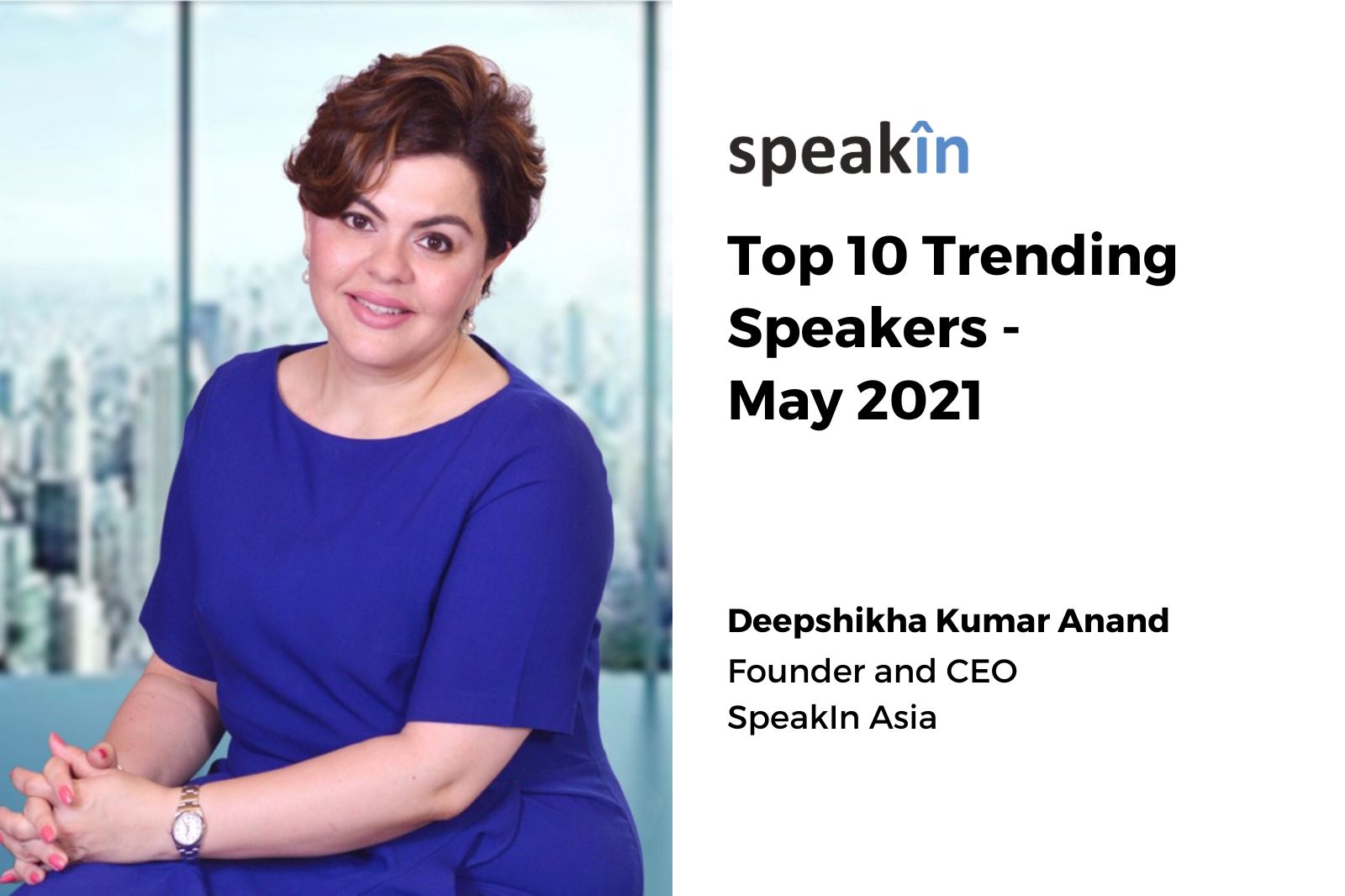One of the biggest elements that are supporting the global engine during these testing times is Inspiration. In a world that has become a hot bowl of chaos due to pandemic, people are getting inspired by the works of some great leaders and are getting prompted to bring a positive change in the lives of many. The May 2021 issue of the top 10 trending speakers highlights some of the fantastic individuals who have influenced people through their words and have become a sought after voice for gaining unparalleled perspectives. On release of the May issue of Top 10 Trending Speakers, Deepshikha Kr. Anand, Founder of SpeakIn comments, “We’ve seen a great deal of enthusiasm among a lot of people that is fueled by the inspiring thoughts and words of some exceptional people. It makes me happy that we are continuing the tradition of bringing the spotlight to these leaders.†Here are the top trending speakers for the month of May 2021: Daymond John

Daymond John is an American businessman, investor, television personality, author, and motivational speaker. He is best known as the Founder, President, and CEO of FUBU, and appears as an investor on the ABC reality television series Shark Tank. John is the founder of The Shark Group. On being asked what he looks for in a Founder of a start-up Daymond comments, “In the founders, I look for a person I feel is trustworthy, driven and smart. I invest in the person first, because in the event the business fails, the person and I can move forward and create another business.†Nir Eyal

Nir Eyal is an Israeli-born American author, lecturer and investor known for his bestselling book, Hooked: How to Build Habit-Forming Products. Eyal has expertise in behavioral engineering, which incorporates elements of behavioral science to enable software designers to develop habit-forming products for businesses. He has taught university courses, given speeches, and published books about the intersection of psychology and technology and business. He comments on how a change in perspective can help individuals accomplish their tasks, “We can cope with uncomfortable internal triggers by reflecting on, rather than reacting to, our discomfort. We can reimagine the task we’re trying to accomplish by looking for the fun in it and focusing on it more intensely. Finally, and most importantly, we can change the way we see ourselves to get rid of self-limiting beliefs.†Sandeep Singh

Sandeep Singh is the Managing Director at Tata Hitachi Construction Machinery Company. With over three decades of experience in India’s automobile, tractors and construction equipment sectors, Sandeep Singh understands more than most the ups and downs the market is prone to experience. Mr. Singh has worked with Mahindra’s, JCB and has served as the Executive Managing Coordinator Toyota Motors (Asia Pacific), Thailand. Sharing his thoughts on leadership, he comments, “At each stage of your career, it is very important to keep on learning and adapting to change. You need to have proper experience, the right mindset, positive attitude and ability to work as a team player.†Dhimant Parekh

Dhimant is the Co-founder and CEO at The Better India. He built and grew The Better India, a social & environmental impact focused digital platform with a reader base of 200 million. He then built India’s first e-commerce marketplace for sustainable products to connect MSMEs to conscious customers. Most recently, he launched India’s only DTC subscription box of sustainable products, The Better – becoming a one-stop destination for all things sustainability-focused in the country. Talking about the value of experimentation, Dhimant says, “The biggest learning for us has been about how we continue to stay relevant as we scale. What has worked for us is the model of constant experimentation. We would experiment a lot with respect to the content, its formats, distribution, frequency and tone. Whatever worked, backed it and did more of that.†Julien Haye

Julien Haye is a Risk and Diversity & Inclusion Thought Leader. Julien leads the Global LGBT inclusion strategy for FIL working closely with senior management and the HR team to nurture FIL’s inclusive and diverse culture. Having worked in less inclusive environments Julien recognises the importance of promoting the benefits of a diverse workforce therefore creating an environment where everyone can be themselves and to be a role model for LGBT colleagues. Commenting on what leadership means to him, Julien says, “For me, leadership is about enabling people to reach their best selves. As a leader in my organization, managing some team, I want them to be able to reach their full potential. At the end of the day, people who can be their full self at work, will be their best version for the business.†Mohit Arora

Mohit Arora is a Partner at Mondriaan Group where he is responsible for shaping business strategy and driving growth for investee companies across Asia Oceania. He works with the management teams of these companies to identify value creation strategies, and develop and monitor deployment plans towards improving financial and operational performance. Mohit is actively engaged with the automotive industry in the region and continues to consult with several OEMs on multiple dimensions of business operations and strategy. He highlights a key ingredient of strong organizations, “When you look at organizational decision making, it is extremely important to understand the value system - of yourself and of the organization. All the data, experience and intuition needs to align with the values that you have. This is what goes beyond building a long standing organization.†Avik Sarkar

Avik Sarkar is Associate Professor of Data, Technology and Public Policy at Indian School of Business. Prior to this, he was the Officer on Special Duty at NITI Aayog, the premier policy think-tank of the Government of India, where he was responsible for developing a roadmap for use of data, analytics and artificial intelligence for Governance and Policy making. He provided analytical insights for policy making across sectors like Sustainable Development Goals (SDG), Direct Benefit Transfer, Innovation, Digital payments, Healthcare and nutrition, Agriculture, etc. Speaking about the importance of data in policy making, he comments, “We need data to make policies. Let’s say we have a fixed sum of money that we need to use for development of certain districts. How do we choose the ones that need the money the most? You need a lot of data about a lot of different parameters in each district to make the right choice.†Eyal Amir

Eyal Amir is co-founder and CEO of Ai Incube, a company providing an API for living streets that predicts everyday information needs for consumers on a large scale. Eyal is an AI leader with 20 years of Artificial Intelligence excellence, winning the best-PhD award at Stanford University computer science and the Top-10 Young AI award from IEEE. He has helped successful startups 6Sense, Reflektion, and Fraud Science, and was tenured associate professor of computer science (now adjunct professor) at UIUC. Recently he defined smart cities as, “A Smart City looks at all the exchanges of information that flow between its many different subsystems. It then analyzes this flow of information, as well as of services, and acts upon it in order to make its wider ecosystem more resource-efficient and sustainable.†Siddhant Gupta

Siddhant works with CXOs of companies to hypergrow their online presence and accelerate their revenue growth. Bringing in a solid understanding of the consumer market, Siddhant comments on the current trends and shares his advice, “As consumer purchase journeys are becoming more complex, with multiple intent rich moments, more and more opportunities are arising to influence and engage with the consumer. Let's identify those right people during the key moments of intent.†Siddharth Dialani

Siddharth Dialani is the Co-founder at BharatAgri where he is transforming the agriculture landscape in India. He is developing a unique algorithm that provides data driven advisory to farmers. The advisory is personalized for farmers' crop, soil, climate and region. Siddharth was recently also featured in the Forbes India 30 under 30 list. Commenting about the rural economy in India he comments, "Out of the 14 crore farmers today, about 3.5 crore farmer have internet access. I believe that in this decade 10 crore more farmers will gain internet access who, apart from using internet for entertainment, will focus on improving their agricultural produce through internet."

